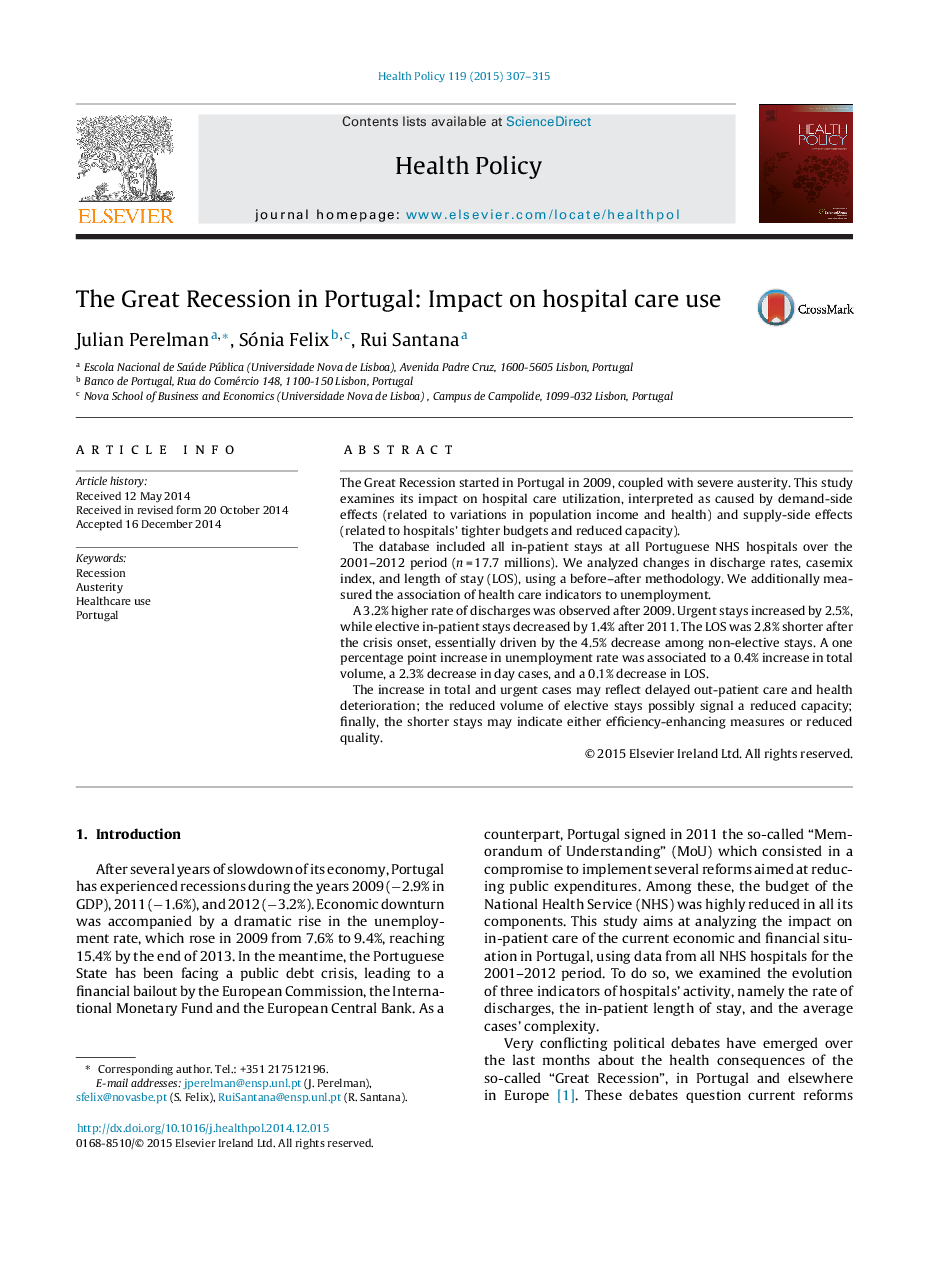| کد مقاله | کد نشریه | سال انتشار | مقاله انگلیسی | نسخه تمام متن |
|---|---|---|---|---|
| 6239471 | 1278998 | 2015 | 9 صفحه PDF | دانلود رایگان |
- The recession in Portugal started in 2009, coupled with a public debt crisis.
- We examined the impact of economic crises and budget cuts on hospital care use.
- In-patient stays, in particular urgent ones, have significantly increased after 2009.
- Stays have become shorter, and elective admissions have decreased.
- Results may reflect a deterioration of health but also a greater efficiency.
The Great Recession started in Portugal in 2009, coupled with severe austerity. This study examines its impact on hospital care utilization, interpreted as caused by demand-side effects (related to variations in population income and health) and supply-side effects (related to hospitals' tighter budgets and reduced capacity).The database included all in-patient stays at all Portuguese NHS hospitals over the 2001-2012 period (n = 17.7 millions). We analyzed changes in discharge rates, casemix index, and length of stay (LOS), using a before-after methodology. We additionally measured the association of health care indicators to unemployment.A 3.2% higher rate of discharges was observed after 2009. Urgent stays increased by 2.5%, while elective in-patient stays decreased by 1.4% after 2011. The LOS was 2.8% shorter after the crisis onset, essentially driven by the 4.5% decrease among non-elective stays. A one percentage point increase in unemployment rate was associated to a 0.4% increase in total volume, a 2.3% decrease in day cases, and a 0.1% decrease in LOS.The increase in total and urgent cases may reflect delayed out-patient care and health deterioration; the reduced volume of elective stays possibly signal a reduced capacity; finally, the shorter stays may indicate either efficiency-enhancing measures or reduced quality.
Journal: Health Policy - Volume 119, Issue 3, March 2015, Pages 307-315
